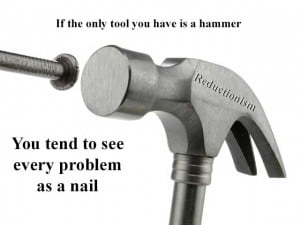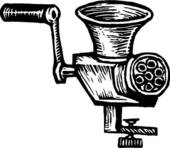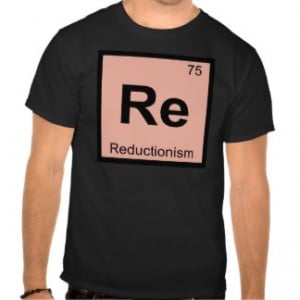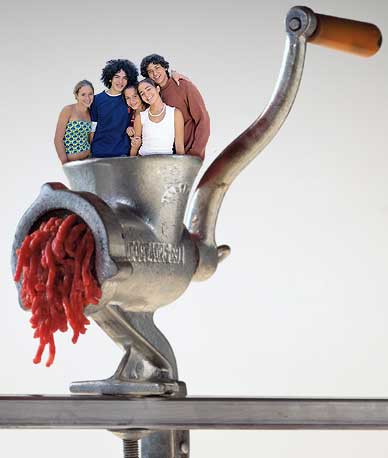Question
I’ve been applying to job postings for which I meet all the criteria, and I mean all of them. I figure that’s one way to beat my competition — to really stand out. How much job competition am I likely to have if I do that? I was one of over 70 people they screened and one of 16 they interviewed. And it happened again, I didn’t get an offer. I wasn’t even a finalist. There has to be a way to minimize competition from the start, I just haven’t figured it out. Is it really possible that 70 other applicants met all the criteria? I doubt it, so why do companies entertain so many candidates? How do I improve my odds from the start?
Nick’s Reply
 Employers complain they can’t find the right people to hire and I think it’s because their recruiting is a herding task. They solicit too widely. This yields a preponderance of undistinguished candidates with a low probability of finding anyone that stands out.
Employers complain they can’t find the right people to hire and I think it’s because their recruiting is a herding task. They solicit too widely. This yields a preponderance of undistinguished candidates with a low probability of finding anyone that stands out.
Recruiting job applicants: More is not better
When employers post a job online, they’re casting a wide net. But more is not better. And it’s even worse because cattle-call “recruiting technology” makes it so easy to invite loads of marginal or even totally wrong applicants. It yields more of the same.
Look at the math. In your case 70 applicants were screened and 16 interviewed. HR will tell us “We got a lot of candidates to pick from!” This means they made 70-16=54 errors. That’s a lot of wasted overhead. Imagine how often this plays out. Employers will routinely sort through thousands of applications, whether manually or via software. They believe (irrationally) that the more candidates they have to choose from, the better the hire they will eventually make. (See Reductionist Recruiting: A short history of why you can’t get hired.)
Your competition is loads of wrong applicants
I believe this approach is actually likely to diminish the quality of hire they make, simply because they are sorting and interviewing many more wrong candidates than necessary. Often, the result is that they hire none and are mystified about why.
When a company hires the best of a large number of candidates, most of whom are disqualified, it is gambling, not really selecting. If the best hire it could possibly make is among loads of “noise” — dozens or hundreds of wrong applicants — what goes up is not the chances of making the right hire, but of missing the best hire among the noise.
Avoid job competition
What does all this have to do with the job competition you face, and how can you avoid it to increase your chances of really matching a job and getting an offer? This “more is better” fallacy reveals a really straightforward alternative that you can immediately use to diminish your competition and increase your chances of getting hired: The best way to avoid competition is to not go near it. That is, stay away from the databases full of applicants that are stocked by online job postings and job boards like LinkedIn and Indeed.
Fisherman’s Wharf
When I lived in Palo Alto, California, I often had guests from the east coast. I’d take them touring around the Bay Area. When we got to San Francisco, everyone wanted to go to Fisherman’s Wharf. It was all I could do to dissuade them: “Fisherman’s Wharf is a tourist trap.”
“No, no — we heard it’s great! Everyone told us to go there! We want to see Pier 39! We want to eat crabs and sourdough bread!”
Of course everyone told them to go there. That’s San Francisco’s crowd-management marketing at work.
The HR Corral: Where the cattle go
San Francisco is a small city, surrounded by water on three sides, with no possibility of sprawling out. Residents and people that work in the city suffer enormous congestion on streets and sidewalks. I’ve always surmised that the city intentionally drives visitors to aggregate in and around Fisherman’s Wharf. The city’s marketing seems to keep visitors corralled there, offering many distractions that attract tourist dollars and time — while keeping those teeming hordes out of everyone else’s way.
The job boards and databases serve the same purpose, if unintentionally. They are a corral not unlike Fisherman’s Wharf. Job seekers flock to them because HR tells them to gather there, stand and wait, like tourists eager to be fleeced, like cattle to the slaughter. “Jobs websites” are designed and marketed to make them seem the best way to apply for jobs. Even HR believes they are the easiest way to recruit and hire.
Steer away from job competition
If you steer away from the madding crowds of Fisherman’s Wharf, you’ll find a lovely city with interesting things to do and people to meet. Every city dweller has a tip about the best restaurants, the hippest bars, the best neighborhood shopping and the coolest little-known sights. All you have to do is circulate solo, without a frightening horde surrounding you. You’ll find all kinds of wonderful experiences in San Francisco — and little interference from competition.
This is why you can’t seem to beat the odds: you’re allowing yourself to be corralled with all your competition. It’s easy to avoid the competition. Don’t go where the competition accumulates. Reduce your competition and increase your chances of getting hired.
5 tips for less job competition
Skip any gate or doorway to job-database corrals. Go where “the locals” hang out. Managers with hidden job needs, and people that can introduce you to their managers, hang out in accessible places that aren’t crowded with your competitors.
- Attend continuing education and training programs where you’ll find people that do the work you want to do.
- Participate in professional events where your future colleagues gather. It’s a low-pressure, fun way to meet insiders that can help you.
- Go have a drink or a meal where employees of your target companies socialize.
- Join in and contribute to the online work-related forums frequented by professionals you’d like to work with.
- Study the business media that cover the people, work, products, technologies and business dealings of companies you’d like to work for. Make it a game or puzzle: Try to suss out what jobs may be opening up based on news about a company. Contact the movers and shakers you read about, ask about their work and ask for advice.
Avoid Fisherman’s Wharf. Avoid corrals where your competition is penned up — but be grateful for them! Less competition means more high quality professional contacts for you. To improve your odds from the start, go where the insiders are more likely to welcome you because you’re not part of a cattle drive.
What’s the best way to avoid the herd (and job competition) when looking for work? Or, is it better to “play the numbers” and apply to job postings everyone else uses?
: :






